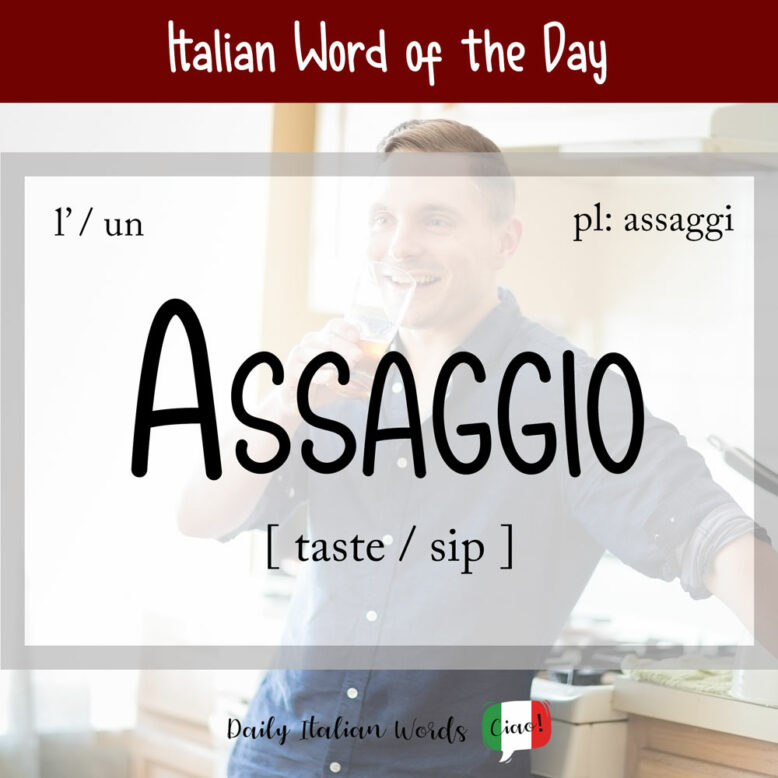The word assaggio (masculine, plural: assaggi) in Italian refers to a small portion of food or drink taken as a sample. In English, it is best translated as taste, but other possibilities include sip (when talking about drinks), bite or nibble to name a few.

Combined with the verb fare (to do / make), you get fare l’assaggio, which has the same meaning as the related verb assaggiare (to taste).
Voglio fare l’assaggio di tutti i formaggi in esposizione!
I want to taste all the cheeses on display!
Keep in mind that more often than not, Italians will just use the verb assaggiare to talk about tasting, or when inviting someone to taste food with phrases like Assaggia! (imperative) or Vuoi assaggiare? (Do you want to taste it?).

Assaggio also frequently appears with the following verbs when talking about food:
- dare un assaggio (di qualcosa) = to give a taste (of something)
- dare in assaggio (qualcosa) = to give (something) to taste
- prendere un assaggio = to taste (lit. to take a taste)
Did you know that…?
In English, the word tasting signifies a gathering of people who sample, compare, and evaluate food and drink, such as for example a wine tasting. In Italian, the appropriate translations would be degustazione (for example: degustazione di vini) which is related to the verb gustare (to taste) and gusto. The latter means taste as in one’s sense of taste.
Figuratively speaking, both assaggio and taste can refer a brief experience of something, or a short encounter. High winds, for example, are an assaggio of a hurricane, just as a brilliant quote extracted from a novel would be an assaggio of the entire book.
Questo è solo un assaggio di quello che accadrà.
This is just a taste of what will happen.
In Italian, assaggio can also mean attempt, test or experiment, much like its synonym saggio from which it is derived. You can also say tentare un assaggio (lit. to attempt at a taste).
Finally, we come to the diminutive assaggino which translates as little taste. For the most part, assaggio and assaggino are interchangeable, but those who do not wish to appear greedy may prefer to use the latter.
Heather Broster is a graduate with honours in linguistics from the University of Western Ontario. She is an aspiring polyglot, proficient in English and Italian, as well as Japanese, Welsh, and French to varying degrees of fluency. Originally from Toronto, Heather has resided in various countries, notably Italy for a period of six years. Her primary focus lies in the fields of language acquisition, education, and bilingual instruction.


